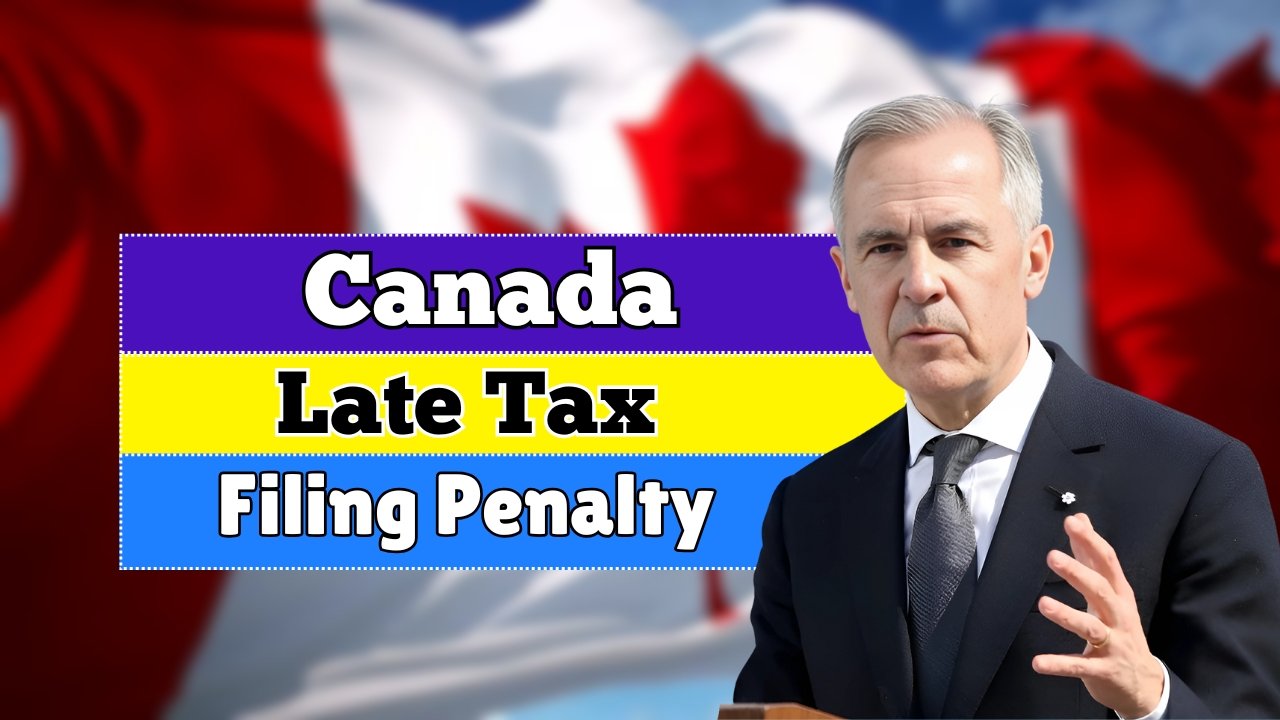Join on WhatsApp
Get the latest updates directly on WhatsApp – motivation, news & more!
Filing taxes on time is a critical responsibility for every Canadian taxpayer. The Canada Revenue Agency (CRA) enforces strict deadlines each year, and missing them can result in financial penalties, accumulating interest, and additional stress. With the 2025 tax season approaching, many Canadians are seeking clarity on late filing penalties, how they are calculated, and what steps to take if they cannot meet the deadline. This article provides a comprehensive guide to CRA deadlines, late filing penalties, interest charges, and tips to ensure timely filing in 2025.
Why Filing Taxes on Time is Important
The Canadian tax system operates on a self-assessment basis, meaning individuals and businesses are responsible for submitting accurate returns on time. Filing taxes promptly not only avoids penalties but also ensures eligibility for government benefits and tax credits. Programs like the Canada Child Benefit (CCB) and GST/HST credit rely on up-to-date tax information. A delayed return may postpone or suspend these payments until the tax return is filed.
Filing on time also helps maintain a clean financial record with the CRA, which can impact future dealings, such as mortgage applications or loan approvals. Timely filing is a crucial part of responsible financial management for Canadians.
CRA Tax Filing Deadlines 2025
For most individuals, the deadline to file income tax returns is April 30, 2025. Since April 30 falls on a weekday, the deadline remains unchanged.
Self-employed individuals, including their spouses or common-law partners, have an extended deadline until June 16, 2025. This extension applies only to filing, not to payment. Taxes owed must still be paid by April 30 to avoid penalties and interest charges.
Meeting these deadlines is essential to avoid unnecessary financial burdens. Filing early is always recommended to prevent last-minute issues or technical difficulties.
CRA Late Filing Penalty 2025
If you owe taxes and fail to file by the due date, the CRA imposes a late filing penalty. For 2025, the standard penalty is calculated as follows:
- 5% of the balance owing immediately
- An additional 1% of the balance owing for each full month the return is late, up to a maximum of 12 months
For example, if a taxpayer owes $5,000 and files four months late, the penalty would be $250 (5% of $5,000) plus $200 (1% x $5,000 x 4 months), totaling $450. This is in addition to the original tax owed, making late filing an expensive mistake.
Repeat Late Filing Penalties
If a taxpayer has been penalized for late filing in any of the past three years, the CRA increases the penalty:
- 10% of the balance owing immediately
- Plus 2% of the balance owing for each full month late, up to 20 months
Repeat offenders can face penalties as high as 50% of the owed amount if the return is significantly delayed. This emphasizes the importance of consistent, timely filing over multiple years.
Interest Charges on Unpaid Balances
In addition to penalties, the CRA applies daily compounded interest on any unpaid balance starting the day after the filing deadline. The prescribed interest rate is updated quarterly and typically exceeds standard bank rates.
For 2025, the CRA’s interest rate is expected to remain around 9% annually, though this may vary with quarterly adjustments. Interest applies not only to taxes owed but also to penalties, meaning delays can quickly increase the total amount owed.
How to Avoid Late Filing Penalties
The simplest way to avoid penalties is to file your tax return on or before the deadline. Even if you cannot pay the full balance immediately, filing on time prevents the late filing penalty and allows you to arrange a payment plan with the CRA for any taxes owed.
Some practical tips to avoid penalties include:
- Marking tax deadlines well in advance on your calendar
- Using CRA’s online services, such as NETFILE, for fast and secure submission
- Filing early to avoid technical issues or unexpected delays
- If unable to pay in full, filing on time and contacting the CRA to arrange installment payments
What to Do if You Cannot File on Time
Unexpected circumstances may make it difficult to file on time. If you anticipate a delay, submit your return as soon as possible to minimize penalties. The CRA’s Taxpayer Relief Program may provide relief in cases of extraordinary circumstances, such as illness, natural disasters, or severe personal hardship. Approval requires documentation and is not guaranteed, but it can reduce penalties and interest if accepted.
Why Timely Filing Matters Beyond Penalties
Late filing affects more than just penalties. It can also impact eligibility for government benefits and credits that rely on income reporting. Programs such as:
- Canada Child Benefit (CCB)
- GST/HST Credit
- Old Age Security (OAS) supplements
require up-to-date tax returns. A delayed return can result in suspended or delayed payments, which may significantly affect household finances. Filing on time ensures uninterrupted access to these benefits.
Conclusion
The CRA takes late tax filing seriously, and penalties can accumulate rapidly. For 2025, individuals should note the April 30 deadline, while self-employed individuals have until June 16 to file, with payments still due by April 30. The standard late filing penalty starts at 5% of the amount owed plus 1% per month, while repeat offenders face significantly higher penalties.
To avoid these costly consequences, Canadians should plan ahead, file on time, and keep accurate financial records. Even if full payment is not immediately possible, filing by the deadline prevents the late filing penalty, saving potentially hundreds or thousands of dollars and ensuring continued access to government benefits.
Timely tax filing is not just a legal obligation; it is a key step in maintaining financial stability and avoiding unnecessary stress.



